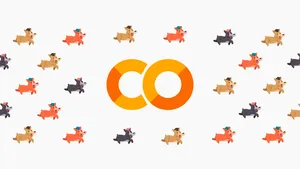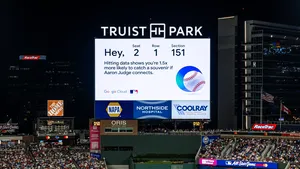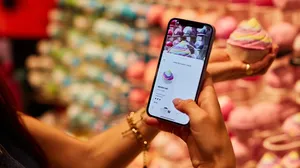How my startup uses AI to reimagine water utilities
Read this post in Spanish. // Blog en español aquí.
History repeats itself, but it doesn’t have to. I was inspired to launch my startup, Varuna, when Austin Water released its first-ever boil water warning in 2018 — a moment eerily similar to the massive winter storm in Texas just a few weeks ago. Because the water utility companies didn’t have enough real-time data to measure water quality in individual neighborhoods, they took the blanket approach of asking all of the city’s 950,000 residents to boil any water ingested through drinking or cooking. After several days of substantially reducing water usage — and seeing more than 625,000 plastic bottles of water handed out across the city — I set out to find a solution.
A systems engineer by trade and a problem-solver by nature, I repurposed our dishwasher’s sensor to create my first water-quality measurement device. Excited, I called up my Chicago-based friend and former employee Jamail Carter to talk about my idea. We agreed that water quality issues like the crisis in Flint are symptoms of a bigger problem: operational inefficiencies within water utilities.
When technicians don’t have real-time visibility into what’s going on across the water distribution system, utilities companies either splurge on a single sensor bound to one location or rely on manual measurement, which can be costly and time-consuming. By simply getting access to the right information, each community water system in the U.S. could save thousands of dollars — and lives — annually for every sample collection point they have on-site.
After months of prototyping and research, Jamail and I launched Varuna, named for the Vedic deity associated with water, truth and enlightenment. The platform provides cities and towns with Google AI-powered alerts, recommendations and predictions to reduce inefficiencies and violations in their water management operations. With a series of connected sensors in the distribution systems, Varuna reduces the number of times technicians need to collect water samples to lab test for quality issues. Google Maps Platform provides the “where” to the what and the why of water quality contamination issues, while Google Cloud gives users a way to access this information whenever they need it—all essential for adopting a proactive, preventive approach to water treatment.
Varuna is founded on the belief that when people know better, they do better. Research shows that water systems in communities of color have a disproportionate amount of EPA violations. By taking away excuses and providing key information, we can positively impact underserved communities. That’s why we first piloted programs in historically diverse locations across Louisiana, Texas, New Jersey and Alabama — and are tackling Chicago and New York City next.
As a Black immigrant founder building a startup in Texas, I understand firsthand the frustration of being denied access to needed resources. Despite the inherent humanity of Varuna’s mission and our proven entrepreneurial track record, Jamail and I faced systemic obstacles as we attempted to raise capital and network in a predominately white industry. Less than 3% of U.S. venture capital funding went to Black-led companies in 2020, despite the fact that 10% of American companies are Black-owned, according to U.S. Census data.
Thankfully, doors are getting opened — forced open in some cases — that have been previously closed to teams like ours. Receiving a $100,000 cash award from the Google for Startups Black Founders Fund last October wasn’t just a financial investment; it was a vote of confidence. Only three months after being selected for the Black Founders Fund, we've raised an additional $1.6 million, added two team members and a design agency partner, all while redesigning and halving the cost of our hardware. When you fund Black founders, you not only create equal access to economic opportunity, but also empower us to create real change with our tech, one glass of clean water at a time.







